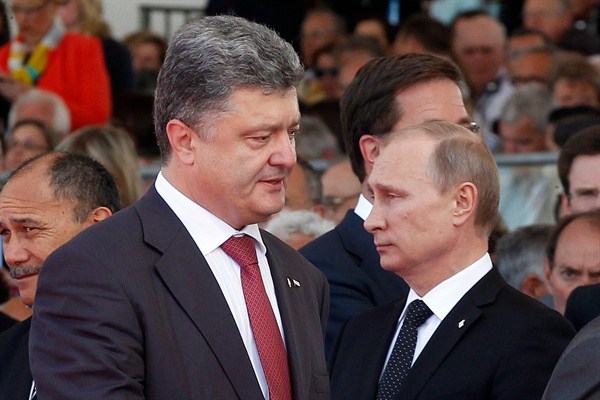After the end of the Cold War, there was a palpable sense of optimism that the Euro-Atlantic community could be expanded at little risk and without significant cost. It was assumed that Russia would either itself seek to join the West or be too weak to oppose the process if it soured on the project. U.S. and European policymakers, however, had not considered the possibility of a Russia both hostile to Western expansion and with sufficient strength to stymie such plans. Now the unfolding end game in Ukraine is challenging the core assumptions of European security that have guided policymakers for the past two decades.
Initially, Russian President Vladimir Putin came to office in 2000 committed to Russia’s European path. As it became clear that Brussels was not interested in carving out special exemptions in its processes and regulations to accommodate Moscow, however, his enthusiasm flagged. At the same time, buoyed by a rise in energy and commodity prices, he presided over a major recovery of the Russian economy and, with it, the first steps to restoring Russia’s hard power projection capabilities.
Moscow had no choice but to accept the first and second waves of Euro-Atlantic expansion. But Putin clearly signaled that any proposed third wave—to incorporate ex-Soviet republics beyond the Baltic States—without a corresponding process of setting down ironclad guarantees to safeguard vital Russian political, security and commercial interests would not be welcomed or even reluctantly tolerated. At the same time, Putin began instead to “look east.” While not ruling out beneficial cooperation and association with Europe, “joining the West” was no longer a Russian national interest, especially if it meant adopting Western conceptions of governance and human rights. Instead, building up a separate Eurasian “pole” in the international system, balanced and independent from both the Euro-Atlantic world in the west and the rising powers of Asia to the south and east, is now the priority.

